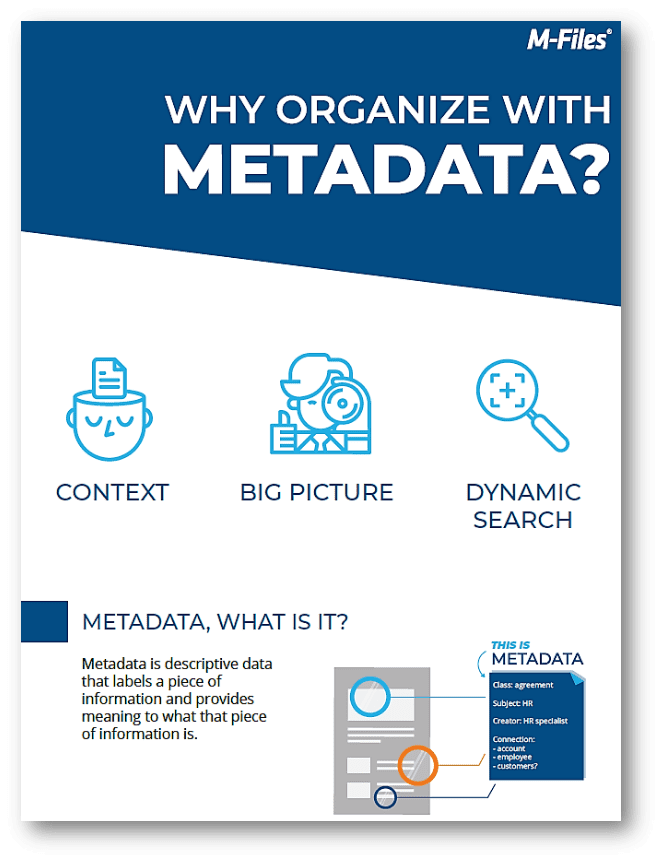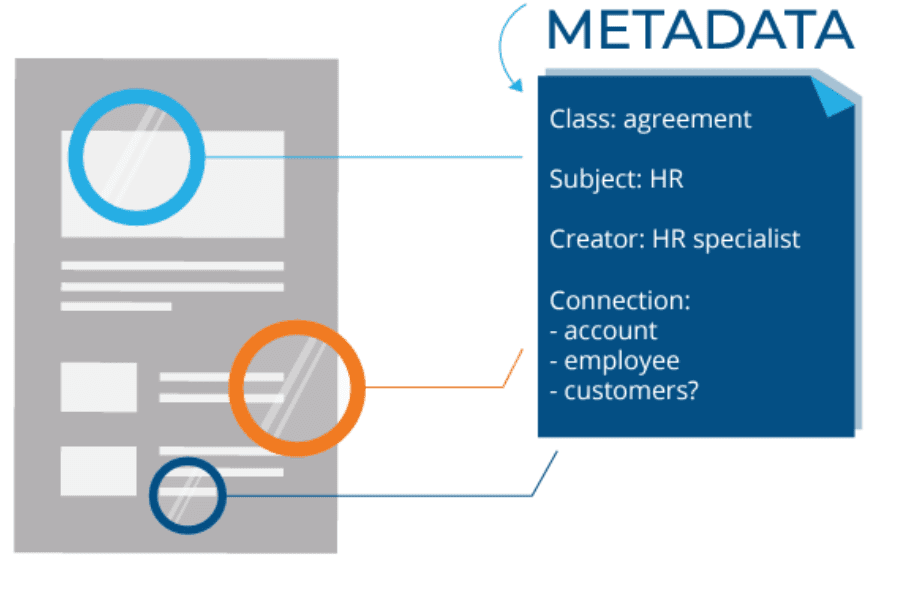How do you define intelligent metadata? An Intelligent Metadata Layer (IML) is a repository-neutral approach to information management. It integrates information from different sources based on context, not the system or folder where the data resides.
With an IML, M-Files users can connect to multiple external repositories in addition to the traditional
document vault in M-Files. Users can use M-Files’ user interface to access and edit content from external sources via special vault applications known as connectors.
If you are an M-Files user, you can take advantage of IML features since it integrates seamlessly with the M-Files experience. As soon as a vault is configured to use connectors and intelligence services, all vault users can access these features directly.
So, what does this mean for your business?
Simple Integration of External Repositories
A user can access external repositories from the M-Files home screen. Like any other M-Files object, the search can also locate and access content in external repositories. Users can restrict their searches to the external view they are currently viewing.
A metadata card’s Source property displays the name of the external repository in which the selected object is stored. Its Location property contains the path to the selected object. Connector-specific folder icons can be used to identify folders in an external repository.
Objects in external repositories are “unmanaged” by default, which means their metadata is not associated with M-Files. Changing the class of an unmanaged object into an M-Files object is as simple as changing its metadata card. After you change the class, you can enrich the object with metadata as needed. Class selection determines the default metadata properties of an object, as is customary in M-Files. Additional metadata properties can also be added.
Intelligent Metadata Improves Workflows
By incorporating intelligent metadata, information management systems can decrease data entry mistakes, enforce consistent data and metadata tags, and even manage workflows.
Organizing and classifying data with an IML also reduces manual entry errors and improves data quality, which helps organizations prioritize content based on factors such as importance or privacy needs, separating business-critical information from trivial information.
M-Files uses artificial intelligence to automate and simplify the process of applying metadata to files, saving time and improving processes dramatically. With its built-in pervasive AI, it generates knowledge from unstructured content in an automated way, thus streamlining the process of identifying, categorizing, processing, and securing business information, as well as providing contextual insights on associated content assets and workflows.
A Unified Interface to All Data and Content
With the help of M-Files’ AI technologies, metadata is automatically created, defined, and contextualized. Users can access all their data and content through a single interface, encompassing e-discovery, records management, auto-classification, and archiving for proper disposition, allowing them to extract the most benefit from unstructured data and work more effectively with regulators.
Users do not have to take any extra steps. Based on the metadata that already exists, M-Files AI learns completely behind the scenes. As a result, information management systems can reduce data entry errors, enforce consistency in information and metadata tags, and even manage workflows. The more it is used, the more intelligent it becomes.
The benefits of M-Files IML include:
- Enhanced productivity
- Better compliance with legal and regulatory requirements
- A better customer experience
- Securely and effectively manage information
- Information at your fingertips, any time, any place, anywhere

Learn more about using intelligent metadata with this infographic, Why Organize with Metadata.
Contact us today to learn more about how intelligent metadata can improve your workflow and save your company money in the process. It’s easier than you think.






